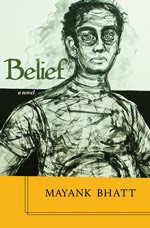Read an article by Noor Zaheer here: Pratilipi
Sunday, August 26, 2012
A progressive writer
Until about a month ago, I hadn’t heard of Sajjad Zaheer
(1905-1973), or his daughter Noor Zaheer.
Munir Pervaiz of the Writers’ Forum (Toronto) gave me a copy of a book – Mere Hisse Ki Roshanai – a memoir written
by Noor Zaheer about her parents Sajjad and Razia Zaheer, both eminent Urdu
writers.
I’ve started reading the book (in Hindi translation).
It’s a fascinating account of life with writer-activist
parents.
Today I also attended an interactive session with Noor
Zaheer that the Writers’ Forum organised. She had a phone chat from India (where it must have been an
unearthly 2:00am) with aficionados in Toronto.
It was one of the most scintillating literary sessions I’ve
attended in a long time.
I follow spoken Urdu with great difficulty, I don’t follow literary
Urdu at all, and I can’t read a word of it.
And yet, listening to Noor Zaheer speak about her father
touched my heart – his simple message to his daughter was that there is no
hardship or sacrifices in doing something you believe in. Sacrifice is only
when you do something you have to, but don’t believe in.
Sajjad Zaheer was an active member of the Communist movement
in India, and one of the founders of Progressive Writers' Movement in India
(Munshi Premchand presided over the first convention of the progressive writers
in 1936).
After Partition, he went to Pakistan and formed the Communist Party in Pakistan along with Faiz Ahmed Faiz.
He was among those arrested in the Rawalpindi conspiracy
case (1951) and was extradited to India on Jawaharlal Nehru’s request. While he
was in prison, he wrote Roshanai – the
first account of the progressive writers’ movement in the subcontinent.
Noor Zaheer also discussed the infamous Shah Bano case which
she had reported on as a journalist, and had worked closely with legal
luminaries and social activists such as Danial Latifi (1917-2000).
She is a researcher and social worker. Apart from Mere Hisse ki Roshnai, she has also
written Surkh Karwan ke Humsafar, a
travelogue of Pakistan, Bad Uraiyya,
a novel, and My God is a Woman.
Noor Zaheer and Amitava Dasgupta (1947-2010) – a communist
and a theatre personality (founder-director of Brechtian Mirror) – were partners
in a cause and partners at home.
For her analysis of the performing arts of the tribes of
north-western border of India called Surviving on the Edge, she was honoured
with a senior fellowship and has been awarded the the Times Fellowship for The
Changing Face of Theatre in Northern India.
She is working on the Buddhist Monasteries of Himachal
Pradesh, documenting the oral traditions and the performing arts of the Lama
tradition.
Read about Sajjad Zaheer here: Bannay Mian
Read an article by Noor Zaheer here: Pratilipi
Subscribe to:
Post Comments (Atom)





No comments:
Post a Comment